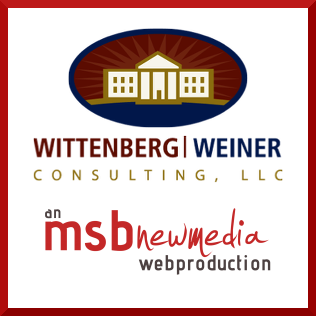With the Government led initiative encouraging businesses to hire Veterans and Military Spouses, there has been a  significant increase in the amount of job fairs making their rounds of the continental USA. Chances are you have seen a Hiring our Heroes, Milicruit, or Military Spouse Career Fair advertised at an installation near you. For many career minded, job seeking Military Spouses, the glossy brochure or advertisement for a job fair triggers the cynical response, “if only it was that easy.”
significant increase in the amount of job fairs making their rounds of the continental USA. Chances are you have seen a Hiring our Heroes, Milicruit, or Military Spouse Career Fair advertised at an installation near you. For many career minded, job seeking Military Spouses, the glossy brochure or advertisement for a job fair triggers the cynical response, “if only it was that easy.”
Job Fairs certainly have received a bit of bad press over the last couple of years. Gone are the “old days” where employers might have a lengthy list of vacancies and be hiring on the spot for positions that appealed to you. The downturn in the economy and advances in technology have many job fair recruiters answering general questions but then referring applicants to the company job databases. Schools and resource offering organizations fill many of the booths and the job seeker with professional qualifications can often be left feeling that only entry level positions are on offer….or that they could have used their time more effectively to search the job database at home. So is it worth attending?
As a career counselor, I always recommend a job seeker attend any career fair in their area. For Military Spouses, this means attending the Veterans Career Fairs which do welcome Military Spouses, even though many companies may seem more focused on targeting the unique technical skills possessed by certain veteran groups. I advocate attending, because a job seeker only needs one lead..or one break…and you never know where this may come from.
The best way to approach a career fair, is to think of it as a networking opportunity and a resource rich environment where you may learn something new which helps you in your job search. You will never be disappointed in a career fair if you approach it with this goal, rather than the goal of ‘finding a job.’ Remember that approximately 80% of vacant positions in the USA are filled through word of mouth rather than advertised positions!
So as career professionals, we don’t need advice on how to dress or act at a career fair, but there are some tips worth considering for maximizing your time and effort.
- Research the represented companies. Don’t wait until you arrive to see who is represented and work out where they are located. Most job fairs provide a list of attendees and a map on the website. Research and make a plan. At a large fair, you will not have enough time to visit everyone. Make a list of your key companies, check what they have advertised on their site, and note their location so that you can make a planned schedule to visit all relevant booths. Take notes on each company so that you have some talking points and questions to review before approaching the representative. Don’t be the job seeker who asks “So what does your company do?” or “What positions do you have vacant at the moment?” A more memorable approach indicates you have done some research and are here to find out additional information. “I noticed from your website that you do do not have any marketing or communications positions available at present. Are there any other types of positions within your company where you seek to recruit people with these types of skills?”
- Visit the resource organizations. It is often easy to become “job focused” and target only the booths which look like employment companies. Resource organizations and nonprofits may not have positions available, but they will have a wealth of knowledge and be committed to helping source solutions for you. Provided they do not require you to pay for their services, they are definitely a great way to network, to gain a referral, or to learn about a employment program you may not previously have heard about.
- Practice your introduction and 30 second commercial. Don’t launch straight into your sales pitch without first introducing yourself. “Hi I’m Joanne Evans and I am an IT Design Consultant specializing in…..” is OK..but how about making that connection with the recruiter before you being to speak. Let the recruiter introduce him/ her self too so that you can establish exactly who you are talking to and then make sure to use his/ her name throughout the conversation. Make yourself more memorable by personalizing your interaction as well as selling your skills.
- Don’t explore the job fair with a friend. We often have Military Spouse friends who are also looking for employment, and can be tempted to move our way around the job fair together. You want to be seen as a individual with a unique professional identity. Confidently move around the job fair solo to accomplish this. Arrange times to meet your friend and compare notes but work independently. This will give you the opportunity to network and meet other job seekers, as well as present a more polished professional image to the potential employer.
- Take notes and follow-up. After each conversation, take a minute to make some quick notes. Always try to obtain a business card or means of following up with the recruiter…..and then take the time that afternoon to send a thank you email with some personalized thoughts about how their conversation interested or motivated you. If appropriate identify how you believe you may be of use to the organization in the future. Remember those resource organizations…just because they don’t have jobs available does not mean you should neglect following up with them. Send their representative an email, look them up on Linked In and nurture that new connection.
Job Fairs can be frustrating if you only focus on the listed vacancies….but where else are you going to find the opportunity to network with hundreds of employers and fellow professionals in one room. My advice - give it a go! With this approach, ever career fair will be a successful experience for you …and it may just be at the next job fair that you get the career lead or connection you need!


Leave a Reply